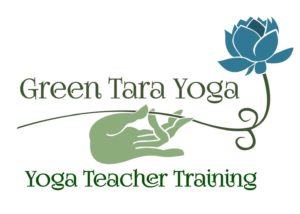


Green Tara Yoga’s
300 Hour Certified Advanced Yoga Teacher Training
Green Tara Yoga in Jupiter, FL is pleased to announce we will offer a 300 Hour Advanced Yoga Teacher Training. This 300 Hour training is Yoga Alliance certified and can be added to your 200 Hour YTT to give you the credential of RYT 500.
GTY’s YTT 300 training will focus on making yoga more accessible to different populations in our community. Learning different styles and techniques will also give yoga teachers more opportunities to enhance their yoga business. Being able to teach to a variety of populations, in different environments and having the skills to customize classes for special events, gives yoga teachers more reach within their community and the ability to add to their income.
There will also be an emphasis on class theming. How to develop a theme and weave it through a class is a skill that is hard to develop in a 200 Hour YTT. GTY’s YTT 300 training will give trainees the skills to build relevant themes that really take teachers to the next level. Some of the greatest impact we have on students is sharing philosophical teachings and life improving ideas.
Training will be facilitated by Owner and Lead Trainer, Mary Veal E-RYT 500, who has been practicing yoga for over 25 years. She has taught yoga since 2009. Her teacher training includes Hatha Yoga, Anusara Yoga and Yoga for Arthritis among other workshops and intensives in therapeutics, Chair Yoga, Yin Yoga, Restorative Yoga, Yoga Nidra, pranayama, meditation, kid’s yoga and others. She has an extensive background in philosophy and her intensives on the Yoga Sutras of Patanjali, The Upanishads and The Bhagavad Gita are very highly regarded in our yoga community.
The training will be offered in an immersion format. To earn the 300 Hour accreditation, all immersions must be completed. Immersions will also be offered individually and qualify for CEUs through Yoga Alliance. The required reading is listed with each immersion. Dates subject to change.
- Immersion 1: Sequencing and Alignment – 30 hours over 2 weeks
- Instructing Hatha Yoga by Kathy Lee Kappmeier
- Yoga Sequencing by Mark Stephens
- Immersion 2: Yamas/Niyamas for Class Theming – 30 hours over 2 weeks
- The Yamas & Niyamas by Deborah Adele
- Immersion 3: Assists and Props – 30 hours over 2 weeks
- Yoga Adjustments by Mark Stephens
- Immersion 4: The Chakras for Class Theming – 30 hours over 2 weeks
- Wheels of Life by Anodea Judith
- Immersion 5: Teaching Restorative Yoga and Yin Yoga – 30 hours over 2 weeks
- Relax and Renew by Judith Hanson Lasater
- Insight Yoga by Sarah Powers
- Immersion 6: Anatomy and Physiology – 15 hours over 1 week
- Science of Yoga – Understand the Anatomy and Physiology by Ann Swanson
- Immersion 7: Teaching Pranayama – 15 hours over 1 week
- Hatha Yoga Pradipika by Swami Muktibodhananda
- Immersion 8: Teaching Mantra – 15 hours over 1 week
- Immersion 9: Teaching Meditation – 15 hours over 1 week
- Immersion 10: Teaching Wall and Partner Yoga – 15 hours over 1 week
- Immersion 11: Teaching Chair Yoga – 15 hours over 1 week
- Graduation
Training Schedule:
Wednesdays 6pm – 9pm
Saturdays 12pm – 6pm
Sundays 12pm – 6pm
Requirements to Apply:
- Trainees must have completed a 200 Hour Yoga Teacher Training and attach their certificate to the application.
- Full Covid 19 vaccination including one booster is required. Please attach a copy of vaccination card to the application.
Tuition:
Full 300 Hour YTT training: $4,200
30 Hour Immersions: $575
15 Hour Immersions: $275
Deposit of $500 due upon acceptance into the program. (Non-refundable)
Payment Installment 1: 30% of balance due TBD
Payment Installment 2: Another 30% due TBD
Payment Installment 3: Remaining balance due TBD
Payments can be made by cash, check, Venmo or Zelle. maryvealyoga@gmail.com or 561-385-8003.
Books are additional and not included in the price.
To apply, please complete the training application and attach required documentation. This can be emailed to maryvealyoga@gmail.com or dropped off at Green Tara Yoga. Mary Veal will then contact you for a phone interview.
For questions or more information please email maryvealyoga@gmail.com or call Mary Veal at 561-385-8003.

Training will be facilitated by Owner and Lead Trainer, Mary Veal E-RYT 500, who has been practicing yoga for over 25 years. She has taught yoga since 2009. Her teacher training includes Hatha Yoga, Anusara Yoga and Yoga for Arthritis among other workshops and intensives in therapeutics, Chair Yoga, Yin Yoga, Restorative Yoga, Yoga Nidra, pranayama, meditation, kid’s yoga and others. She has an extensive background in philosophy and her intensives on the Yoga Sutras of Patanjali, The Upanishads and The Bhagavad Gita are very highly regarded in our yoga community.
Immersion 1: Sequencing and Alignment
Sequencing and Alignment are the foundations of a great yoga class. We will review the Anusara Universal Principles of Alignment and proper sequencing. Sequencing discussions will include the proper use and forms of kramas, foundation and efficiency of poses. Time will be spent on the proper flow of a class to make it feel uninterrupted in form and flow. We will review poses by categories, such as seated, standing, balancing, reclined, twists, etc to reenforce the proper alignment of each pose. Trainees will create kramas, short sequences, and full length class sequences. This immersion will also be a fantastic refresher if you haven’t taught yoga for a while.
Immersion 2: Yamas/Niyamas for Class Theming
Lecture and discussion of the Yamas and Niyamas from Patanjali’s Yoga Sutras with very detailed emphasis on how to use the information in a class setting. We will spend time on developing a real understanding of each yama and niyama through real life example, story and well known quotes. A thorough explanation of how to successfully theme a yoga class. Detailed instructions on the elements you should include to create and deliver a successful class theme.
Immersion 3: Assists and Props
Classroom discussions and lectures will review the hands on assist principles and techniques. Props will be explained and demonstrated thoroughly. Emphasis of how to teach using a variety of props and hands on assists. Trainees will have an opportunity to practice on each other to ensure full knowledge of correct technique. Hands on assists will be reviewed by category of asanas such as standing, seated, reclined, twists and balance poses. Props will be explained and demonstrated thoroughly. The conditions that require prop use will be reviewed, such as injuries and other limitations of students. Creative use of props will include the use of blocks, straps, bolsters, blankets, balls, knee pads, foam wedges, extra yoga mats and hand towels.
Immersion 4: The Chakras for Class Theming
Lecture and discussion of the Chakra system as related to yoga philosophy and eastern philosophy with very detailed emphasis on how to use the information in a class setting. We will compare each chakra to the four streams of yoga and sacred texts such as Bhagavad Gita, Yoga Sutras and the Upanishads. The Chakra system as related to yoga philosophy and eastern philosophy with very detailed emphasis on how to use the information in a class setting. The chakras system will be used to create classes emphasizing a philosophical, mental or emotional theme. A comprehensive structure for each chakra will be created to detail what poses, mantras, essential oils, music, pranayama and other elements can reinforce the essence of each chakra. A thorough explanation of how to successfully theme a yoga class. Detailed instructions on the elements you should include to create and deliver a successful class theme.
Immersion 5: Teaching Yin Yoga
Lecture, discussion and demonstration of Yin Yoga. This will include the principles, attributes and poses of Yin Yoga with emphasis on the median system and relation to mental and emotional states. Emphasis of how to teach Yin yoga compared to other styles. Discussion will include how to develop a full yin yoga class as well as how to incorporate yin poses in other types of classes.
Immersion 5: Teaching Restorative Yoga
Lecture, discussion and demonstration of Restorative Yoga. This will include the principles, attributes and poses of Restorative Yoga with emphasis on relaxation techniques and meditation. Emphasis of how to teach Restorative yoga compared to other styles. Discussion will include how to develop a full restorative yoga class as well as how to incorporate restorative poses in other types of classes. Proper emphasis on an efficient flow of poses and props will be demonstrated.
Immersion 6: Anatomy and Physiology
Lecture and discussion of Anatomy and Physiology related to teaching yoga and how to communicate this in a class environment to students. We will review Human Anatomy in relation to Asanas, Life Stages and Stress through these systems:
- Skeletal system
- Muscular system
- Nervous system
- Endocrine system
- Respiratory system
- Cardiovascular system
- Lymphatic system
- Digestive system
Discussion will also include how to read and present yoga related research studies and papers in a class environment. The use of research studies helps teachers to develop workshops and work with private clients.
Immersion 7: Teaching Pranayama
Lecture, discussion and demonstration of various methods and teaching techniques of Pranayama. Emphasis of how to teach each pranayama technique. This will include Kapalbhati, Bhramari, Visamavrtti, Dirga, Bhastrika, Nadi Shodana, Ujjayi, Sheetali, and Kumbhakas. Discussion will include benefits and contraindications. Appropriate uses of each method, when to use in class and how they can enhance the space being held in the class.
Immersion 8: Teaching Mantra
Lecture, discussion and demonstration of various methods and teaching techniques of Mantra. This will include mantras such as Shiva Mantra, Gayatri Mantra, Om Mani Padme Hum Mantra, Ganesha, Dwadasakshari Mantra and Maha Mantra. Discussion will include appropriate uses of each mantra, when to use in class and how they can enhance the space being held and theme of the class.
Immersion 9: Teaching Meditation
Lecture, discussion and demonstration of various methods and teaching techniques of Mediation. This will include Mindfulness, Vipassana, Insight Meditation, Calm Abiding, Open Awareness, Metta, Guided Imagery and Yoga Nidra. Discussion will include appropriate uses of each method, when to use in class and how they can enhance the space being held in the class
Immersion 10: Teaching Wall and Partner Yoga
Lecture, discussion and demonstration of various methods and teaching techniques of Wall Yoga and Partner Yoga. Detailed explanation and examples of how a full class can be developed using these styles of yoga as well as how to incorporate individual wall or partner poses into other yoga classes. Emphasis will be made on how to use these styles in private settings such as workshops, clinics, corporate retreats, birthday or bridal showers. Discussion will be included in how other types of events can boost your yoga business as well.
Immersion 11: Teaching Chair Yoga
Lecture, discussion and demonstration of various methods and teaching techniques of Chair Yoga. Time will be spent on considerations for the student demographics and populations that take and benefit from Chair Yoga. Important aspects of chair class include: Body awareness, Balance, Strength, Confidence, Joint mobility, and Flexibility. Discussion will include different environments that chair Yoga can be taught in and how to reach out to those facilities.
